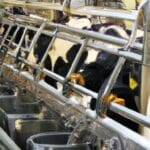Main Points In Hindi (मुख्य बातें – हिंदी में)
यहाँ पर “गबर-धन योजना (Gobar-Dhan Yojana)” के मुख्य बिंदु दिए गए हैं:
- योजना का उद्देश्य: गबर-धन योजना का उद्देश्य ग्रामीण क्षेत्रों में स्वच्छता और सतत विकास को बढ़ावा देना है। इस योजना के तहत गोबर, कृषि अवशेष और अन्य जैविक कचरे को बायोगैस में परिवर्तित किया जाता है।
- वित्तीय सहायता: केंद्र और राज्य सरकारें मिलकर बायोगैस संयंत्र स्थापित करने के लिए प्रति इकाई ₹37,000 की सब्सिडी देती हैं। इससे लाभार्थी को केवल ₹5,000 की लागत सहन करनी होती है।
- स्वच्छता अभियान में योगदान: योजना के तहत स्थापित बायोगैस संयंत्र “स्वच्छता ही सेवा – 2024” अभियान में एक महत्वपूर्ण भूमिका निभा रहे हैं, जो देश भर में स्वच्छता कार्यक्रमों को तेज करने का उद्देश्य रखता है।
- पारिस्थितिकी और रोजगार: बायोगैस संयंत्रों से न केवल वैकल्पिक ऊर्जा स्रोत उपलब्ध हो रहे हैं, बल्कि इससे ग्रामीण क्षेत्रों में स्वास्थ्य लाभ, स्वच्छता, और रोजगार के अवसर भी बढ़ रहे हैं।
- सफलता की कहानी: गुजरात में 7,276 बायोगैस संयंत्र स्थापित किये जा चुके हैं और राज्य ने 10,000 और संयंत्र लगाने का लक्ष्य रखा है, जिससे महिलाएँ स्वयं सहायता समूहों के माध्यम से नई रोजगार अवसर प्राप्त कर रही हैं।
Main Points In English(मुख्य बातें – अंग्रेज़ी में)
Here are the main points regarding the Gobar-Dhan Yojana:
- Objective and Government Support: The Gobar-Dhan Yojana aims to promote clean fuel and sustainable development in rural areas by converting organic waste into biogas. The Central and State Governments provide a joint subsidy of Rs 37,000 for setting up biogas plants.
- Health and Environmental Benefits: Biogas plants provide alternative energy sources, promote a clean environment, and improve health outcomes while creating employment opportunities for rural communities. Over 7,200 biogas plants are currently operational in Gujarat, benefiting local animal farmers by reducing dependency on traditional fuels.
- Financial Incentives for Farmers: To set up a biogas plant, cattle owners need to invest only Rs 5,000 after receiving subsidies. The total cost is around Rs 42,000 per plant, with funding assistance from the central government, state government, and MNREGA.
- Expansion Goals: Gujarat has successfully installed 7,276 biogas plants and aims to set up an additional 10,000 plants through cluster initiatives, promoting income generation via the sale of organic fertilizer from these facilities.
- Community Empowerment: The scheme not only addresses energy needs but also fosters self-reliance among women in self-help groups by creating new employment opportunities through fertilizer cooperatives.
Complete News In Hindi(पूरी खबर – हिंदी में)
सफाई और सतत विकास को बढ़ावा देने के लिए केंद्रीय सरकार ने गोबर-धन योजना (गैल्वनाइजिंग ऑर्गेनिक बायो-एग्रो रिसोर्सेज धन योजना) शुरू की है। इस योजना के तहत केंद्रीय और राज्य सरकारें मिलकर बायोगैस प्लांट स्थापित करने के लिए 37,000 रुपये की सब्सिडी प्रदान करेंगी। बायोगैस प्लांट ग्रामीण क्षेत्रों में वैकल्पिक ऊर्जा स्रोत, स्वच्छ वातावरण, स्वास्थ्य लाभ और रोजगार के अवसर प्रदान कर रहे हैं। गुजरात में इस योजना को अच्छा प्रतिक्रिया मिल रही है। वर्तमान में गुजरात में 7,200 से अधिक बायोगैस प्लांट सुचारू रूप से चल रहे हैं, जिनसे पशुपालकों को लाभ मिल रहा है। इससे पारंपरिक ईंधन पर खर्च कम हो रहा है। सभी राज्यों के पशुपालक इस योजना का लाभ उठा सकते हैं।
यह योजना 2018 में शुरू की गई थी
प्रधानमंत्री मोदी ने 17 सितंबर से 31 अक्टूबर तक ‘स्वच्छता ही सेवा – 2024’ अभियान की शुरुआत की है। इस अभियान का उद्देश्य देश भर में स्वच्छता कार्यक्रमों को तेज करना है। ‘स्वच्छता ही सेवा’ अभियान में गोबर-धन योजना के अंतर्गत स्थापित बायोगैस प्लांट भी स्वच्छ ईंधन का उत्पादन कर स्वच्छ वातावरण को बढ़ावा देने में महत्वपूर्ण भूमिका निभा रहे हैं। गोबर-धन योजना को भारत सरकार के जल शक्ति मंत्रालय – पेयजल और स्वच्छता विभाग द्वारा 1 नवंबर 2018 को शुरू किया गया था, जिसका उद्देश्य गोबर, कृषि अवशेष और अन्य जैविक अपशिष्टों को बायोगैस, कम्प्रेस्ड बायोगैस (CBG) या बायोगैस में बदलना है। इस बायोगैस को पकाने और बिजली उत्पादन के लिए उपयोग किया जाता है।
अधिक जानें – सौराष्ट्र-कच्छ में फसलों की रक्षा के लिए किसानों को 10 घंटे की बिजली मिलेगी, गुजरात सरकार का बड़ा निर्णय।
पशुपालक को केवल 5 हजार रुपये खर्च करने होंगे
योजना का लाभ उठाने के लिए पशुपालक के पास कम से कम दो जानवर होना जरूरी है। बायोगैस प्लांट स्थापित करने के लिए केंद्रीय और विभिन्न राज्य सरकारें प्रति यूनिट 37,000 रुपये की सब्सिडी देती हैं। 2-क्यूबिक मीटर क्षमता वाले बायोगैस प्लांट के लिए लाभार्थी को 5,000 रुपये खर्च करने होंगे। वहीं, केंद्रीय और राज्य सरकारें मिलकर 25,000 रुपये की सब्सिडी देती हैं। इसके अलावा, MNREGA से 12,000 रुपये भी मिलते हैं जो कि गड्ढे खोदने और गोबर और जैविक अपशिष्ट एकत्र करने के लिए होते हैं। यानी एक बायोगैस प्लांट 42 हजार रुपये में स्थापित किया जा सकता है। बायोगैस प्लांट स्थापित करने की जिम्मेदारी बनास डेयरी, सबर डेयरी, दूध सागर डेयरी, अमूल डेयरी और NDDB को दी गई है।
10 हजार और प्लांट लगाने का लक्ष्य
गुजरात में 7,600 बायोगैस प्लांट स्थापित करने का लक्ष्य निर्धारित किया गया था, जिनमें से अब तक कुल 7,276 स्थापित किए जा चुके हैं। राज्य ने 97% लक्ष्य पूरे कर लिए हैं। वहीं, क्लस्टर बायोगैस प्लांट पर काम जारी है। मुख्यमंत्री भूपेंद्र पटेल ने राज्य में 50 नए क्लस्टर में 10,000 और बायोगैस प्लांट स्थापित करने की योजना बनाई है। बायोगैस प्लांट से प्राप्त जैविक खाद बेचना सहयोगी समाज बनाकर आय बढ़ाने का एक साधन बन सकता है। स्वयं सहायता समूहों की महिलाएं खाद्य सहकारी societies के माध्यम से आत्मनिर्भर बन रही हैं और उन्हें नए रोजगार के अवसर मिल रहे हैं।
Complete News In English(पूरी खबर – अंग्रेज़ी में)
To promote clean fuel, the Central Government has implemented the Gobar-Dhan Yojana (Galvanizing Organic Bio-Agro Resources Dhan Yojana) with a focus on cleanliness and sustainable development in rural areas, in which the Central and State Governments will jointly provide Rs 37,000 for setting up biogas plants. Provides subsidy of Rs. Biogas plants are providing alternative energy sources, clean environment, health benefits and employment opportunities to rural areas. Good response is being seen in Gujarat regarding this scheme. At present, more than 7,200 biogas plants are running smoothly in Gujarat, which are benefiting the animal farmers. Due to this, the cost spent on traditional fuel is being reduced. Animal farmers of all states can take advantage of this scheme.
The scheme was started in 2018
Let us tell you that PM Modi has started the ‘Swachhata Hi Seva – 2024’ campaign from 17 September to 31 October. The aim of this campaign is to accelerate cleanliness programs across the country. In the ‘Swachhata Hi Seva’ campaign, biogas plants established under Gobar Dhan Yojana are also playing an important role in promoting clean environment by producing clean fuel. Gobar-Dhan Yojana was launched by the Ministry of Jal Shakti – Department of Drinking Water and Sanitation, Government of India on 1 November 2018 with an objective to convert organic waste like cattle dung, agricultural residues and other organic wastes into biogas, compressed biogas (CBG) or biogas. -By converting biogas into CNG, it is used for cooking and generating electricity.
Also read – To save crops in Saurashtra-Kutch, farmers will get 10 hours of electricity, a big decision of Gujarat government.
The cattle rearer will have to spend only Rs 5 thousand
To avail the benefits of the scheme, it is mandatory for the cattle owner to have at least two livestock. For setting up biogas plants, the central government and the governments of different states give a subsidy of Rs 37,000 per unit. For every 2-cubic meter capacity biogas plant, the beneficiary has to spend Rs 5,000. At the same time, the central and state governments together give a subsidy of Rs 25,000. At the same time, Rs 12,000 comes from MNREGA for digging pits and collecting cow dung and organic waste. That means a biogas plant can be set up for Rs 42 thousand. Banas Dairy, Sabar Dairy, Doodh Sagar Dairy, Amul Dairy and NDDB have been given the responsibility as implementing agencies for setting up the biogas plant.
Target to plant 10 thousand more plants
A target was set to set up 7,600 biogas plants in Gujarat, of which a total of 7,276 have been installed so far. The state has completed 97 targets. At the same time, work is going on on the cluster biogas plant. Chief Minister Bhupendra Patel has planned to set up 10,000 more biogas plants in 50 additional clusters in the state. Income can be increased by forming a cooperative society to sell the organic fertilizer obtained from the biogas plant. Women of self-help groups are becoming self-reliant through fertilizer cooperatives and have got new employment opportunities.










